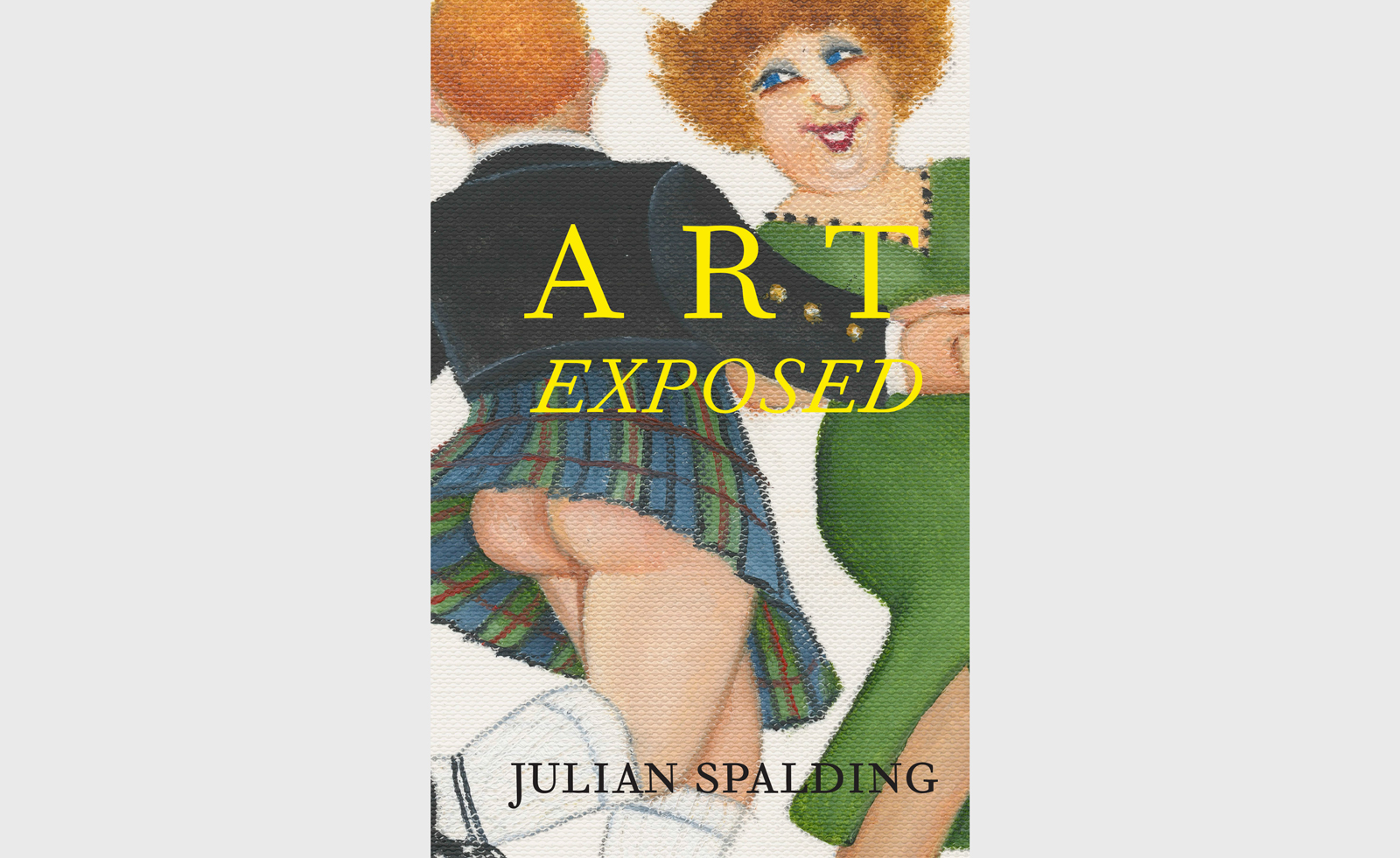‘Art Exposed’: Julian Spalding on everything that’s wrong with the art world
In ‘Art Exposed’, Julian Spalding draws on his 40 years in the art world – as a museum director, curator, and critic – for his series of essays

Receive our daily digest of inspiration, escapism and design stories from around the world direct to your inbox.
You are now subscribed
Your newsletter sign-up was successful
Want to add more newsletters?

Daily (Mon-Sun)
Daily Digest
Sign up for global news and reviews, a Wallpaper* take on architecture, design, art & culture, fashion & beauty, travel, tech, watches & jewellery and more.

Monthly, coming soon
The Rundown
A design-minded take on the world of style from Wallpaper* fashion features editor Jack Moss, from global runway shows to insider news and emerging trends.

Monthly, coming soon
The Design File
A closer look at the people and places shaping design, from inspiring interiors to exceptional products, in an expert edit by Wallpaper* global design director Hugo Macdonald.
Art Exposed by Julian Spalding is a collection of essays and memoirs of his 40 years as a museum director, curator, critic and writer – a period in which he helped spearhead the resistance to the cult of conceptual art. ‘It’s non-art, it’s con-art,’ says Spalding on the phone. ’The idea that anything can be a work of art just because an artist says so is just nonsense.’
Spalding began his museum career in 1970 as assistant keeper at the DLI Museum and Arts Centre in Durham, UK, and subsequently became the director of award-winning public art galleries for the cities of Sheffield, Manchester and Glasgow. A series of standalone essays arranged in alphabetical order, Art Exposed celebrates the art that Spalding loves – Aboriginal art (‘40,000 years of abstraction’), critically unacclaimed artists such as Beryl Cook, Mandy McCartin and Jean Tinguely – while leaving plenty leftover for encounters with Queen Elizabeth II, Margaret Thatcher, David Bowie, Jacques Chirac and, most importantly, the art and art-world figures to which he is opposed. Chief amongst them are the two men he holds most culpable for the cult of conceptual art: Sir Nicholas Serota, former director of the Tate Modern, and the artist Marcel Duchamp.
‘It’s non-art, it’s con-art’
Julian Spalding on conceptual art
This is his sixth book, and Spalding possesses a novelist's eye for characterisation (or assassination depending on your point of view). A description of Serota – ‘An odd man to look at, more bone than flesh, tall, thin and vertical. The only horizontal line in him is the closed aperture in his mouth, which is thin-lipped and straight’ – seems a bit personal, because it is; Spalding can’t stand him. Both were interviewed for the Tate Modern role, a job that the working-class Spalding believes he did not get in part due to an establishment stitch-up (Serota is the son of a Labour peer). Their professional rivalry tells us a lot about class privilege, nepotism, commerce and art in the UK, at odds with the groovy creative egalitarianism promised by Cool Britannia in the 1990s. But it’s Serota’s belief in Duchamp and conceptualism that really rankles Spalding. ‘He chose the wrong art, chose the wrong building, and stayed far too long’, is Spalding’s final, damning verdict.
Perhaps the most important essay from an art historical perspective contains the assertion that Marcel Duchamp, the father of conceptual art, was not responsible for his most famous work, The Fountain (1917). Research by Glyn Thompson, a former lecturer in art history at Leeds University, proposes that the upside-down urinal, and what Spalding calls ‘the foundation stone of conceptual art’, was stolen by Duchamp from the German Dada artist Elsa von Freytag-Loringhoven. Even worse, the essay continues, Duchamp robbed the original of its feminist symbolism, anger and wit. ‘Elsa’s urinal is the first great pacifist, feminist work of art in the world, and a big attack on male domination and male belligerence,’ says Spalding. ‘It’s so interesting and has so many dimensions.’ Spalding hopes that this view will eventually become common knowledge in the art world – both he and Thompson have campaigned to have museums, including the Tate Modern relabel The Fountain – and lead to a total reappraisal of conceptual art.
So what should replace it? ‘Curators have to look freshly and independently,’ says Spalding. ‘They need to be a different voice from the market, but it's all been tied to the market as well as being tied to the wrong concept of what art is. It's resulted in a sort of fake religion that you can’t criticise and I think that’s wrong.’ They could start by having a look at some of the unheralded artists profiled in Art Exposed.
Art Exposed, by Julian Spalding, published by Pallas Athene Books, £15.55 from amazon.co.uk
Receive our daily digest of inspiration, escapism and design stories from around the world direct to your inbox.
Alfred Tong is a writer and journalist with a specialist interest in men’s fashion, pop culture and art. He has contributed extensively to GQ and Soho House and consults across a range of fashion and luxury brands.